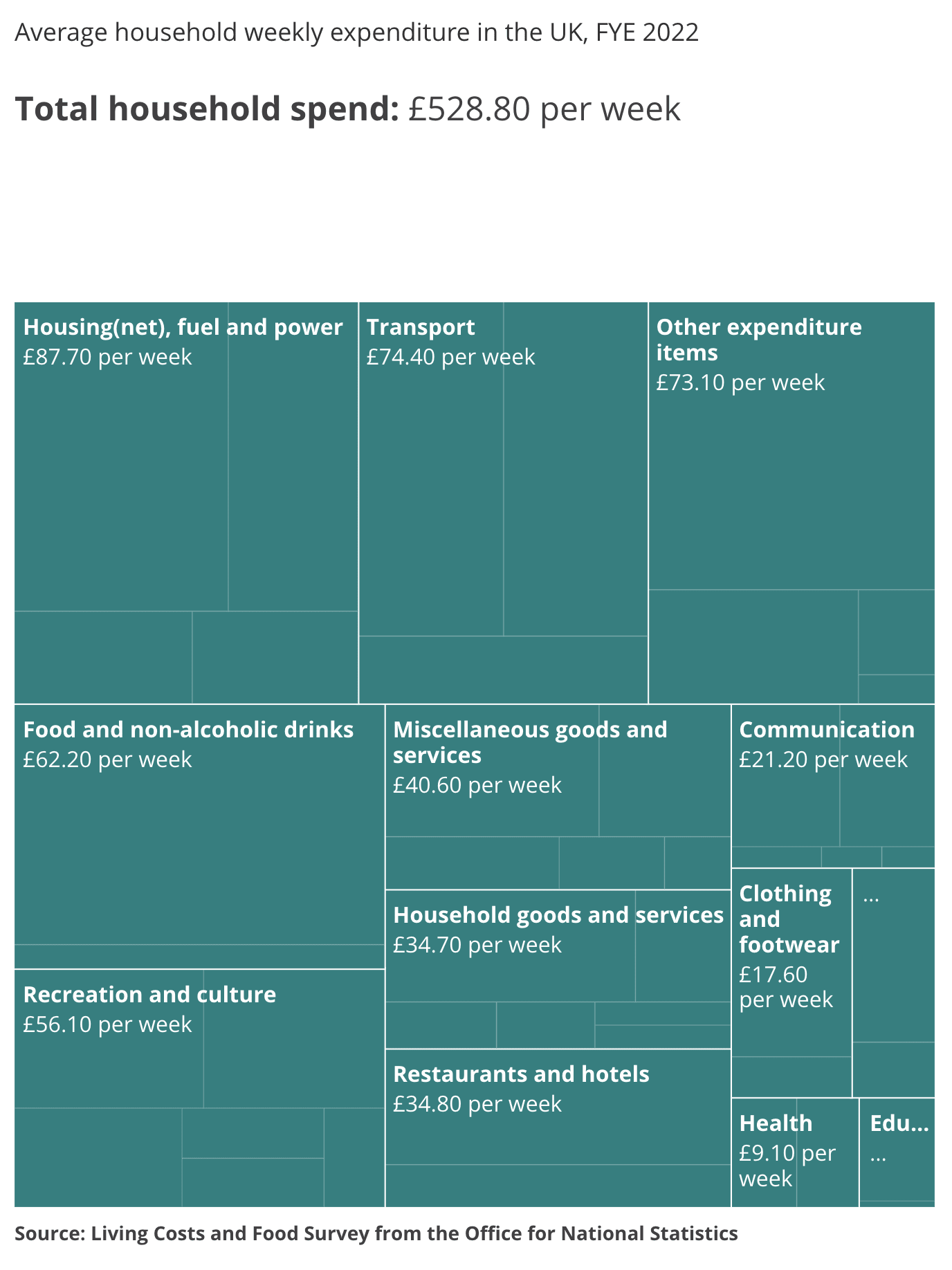The ONS’s definition of household:
A household is one person living alone, or a group of people (not necessarily related) living at the same address who share cooking facilities and share a living room, sitting room or dining area. A household can consist of more than one family, or no families in the case of a group of unrelated people.
Higher housing costs mean fewer households. Children live with their parents for longer. Graduates move into HMOs because they can’t afford a one-bedroom flat. Households growing at a slower rate than dwellings doesn’t mean there isn’t a supply constraint; it can often mean the opposite.
If I wanted to prove your point, the test would be whether the number of dwellings grew faster than the number of people, not the number of households.

Maybe? For the median person, healthcare seems better, disposable salaries are higher, variety and quality of food is generally stronger. The US does a lot of things better. Housing, for sure, is one of them. But I’m not sure how this is a response to my point. Could you clarify?